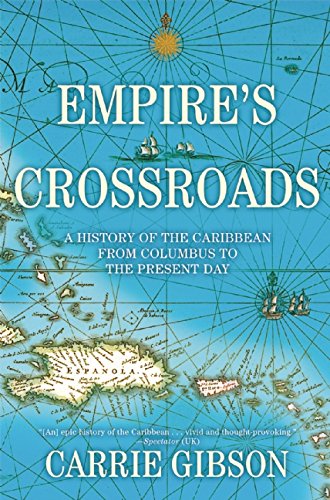
Empire's Crossroads
A History of the Caribbean from Columbus to the Present Day
- اطلاعات
- نقد و بررسی
- دیدگاه کاربران
نقد و بررسی

November 17, 2014
Gibson, a former journalist for the British newspaper, the Guardian, offers a thoroughly-researched and meticulously-detailed history of the Caribbean. In its vivid descriptions, Gibson's book is a powerful indictment of the sad story of colonialism and equally powerful commentary on the savagery of slavery. Ever since the arrival of Columbus in 1492, Caribbean lands have been variously dominated by the colonial French, Portuguese, English, and Dutch empires. Thus, it has also been the site of wars over political control and natural resources, massive revolts (particularly by slaves), and revolutions. Because the Caribbean has historically been a microcosm of competing national interests, Gibson helpfully provides enough international history to place the region's experience firmly in a global context. For instance, she shows how in the 20th century the Cold War reached deep into the region, with the Cuban missile crisis a prime example. Gibson unblinkingly describes the challenges facing the region, among them Haiti's efforts to rebuild after the 2010 earthquake, Cuba's need to replace the economic support it lost upon the Soviet Union's collapse, and the West Indies's need to manage the economic distortions and contradictions inherent in the invasive tourist industry. Gibson demonstrates a deep affection for the region and captures its rich, complex history.

October 15, 2014
Independent historian Gibson's nonfiction debut is a marvelously rich and inclusive panorama of five centuries of Caribbean history. The author characterizes the Caribbean region as a global crossroads (hence the title) where Africans, Asians, Europeans, and indigenous peoples collided and intermingled to form syncretic creole societies. The Spanish, French, British, and Dutch battled rebels and rival empires as they built exploitative colonial economies powered by slavery and sugar plantations, followed by 20th-century interventions and eventual profiteering by American interests. Also spotlighted is the disconnect between the poverty and joblessness gripping the largely Afro-Caribbean islanders and the walled-off enclaves and luxury cruises that sustain the complacent fantasy of the Caribbean as a playground for mostly white tourists. Gibson is judicious in her sympathies, decrying the region's persistent homophobia and corruption while highlighting the cultural vitality of the calypso musicians and the nuances of Cuba's decades-long communist experiment. Omission of the islands' indigenous past proves only a minor shortcoming in a work that brings fresh energy, assurance, and insight to an area that is not often the focus of historians. VERDICT Gibson's study is sure to gratify academics, history buffs, and anyone intrigued by the Caribbean's colorful, volatile, and multifaceted societies.--Michael Rodriguez, Hodges Univ. Lib., Naples, FL
Copyright 2014 Library Journal, LLC Used with permission.




دیدگاه کاربران